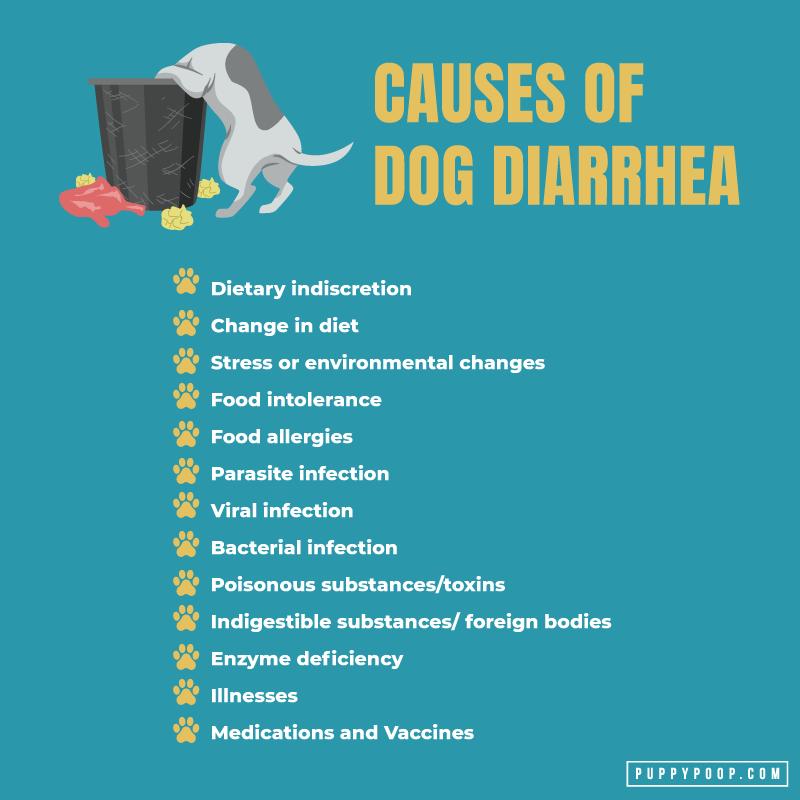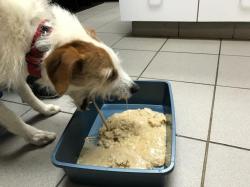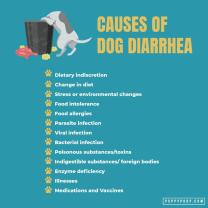Why does my dog have diarrhea and not eating?
I am not a veterinarian, but there are several potential reasons why your dog may be experiencing diarrhea and a loss of appetite. It's important to note that these symptoms can be indicative of various underlying issues, and a professional veterinary examination is crucial for an accurate diagnosis and appropriate treatment. Some possible causes include:
Dietary indiscretion: Dogs may develop diarrhea and a loss of appetite if they have ingested something inappropriate or spoiled, such as garbage, toxic plants, or certain human foods.
Gastrointestinal infections: Bacterial, viral, or parasitic infections can lead to gastrointestinal upset, causing diarrhea and a decreased appetite. Common culprits include bacteria like Salmonella or Campylobacter, viruses like parvovirus, and parasites like Giardia or worms.
Changes in diet: Rapid changes in your dog's diet can disrupt their digestive system, leading to gastrointestinal issues. Gradual transitions when introducing new foods are recommended.
Food allergies or sensitivities: Some dogs may have allergies or sensitivities to certain ingredients in their food, resulting in digestive problems.
Inflammatory bowel disease (IBD): This chronic condition can cause inflammation in the gastrointestinal tract, leading to symptoms like diarrhea and a reduced appetite.
Pancreatitis: Inflammation of the pancreas can result in digestive issues, including diarrhea and a lack of interest in food.
Toxic substances: Ingestion of toxic substances, such as certain plants, chemicals, or medications, can lead to gastrointestinal distress.
Parvovirus: This highly contagious viral infection primarily affects puppies and can lead to severe diarrhea, vomiting, and a loss of appetite.
Kidney or liver disease: Conditions affecting the kidneys or liver can impact a dog's overall health, including their digestive system.
If your dog is experiencing diarrhea and a loss of appetite, it's crucial to consult with a veterinarian promptly. The vet will perform a thorough examination, possibly recommend diagnostic tests, and provide appropriate treatment based on the underlying cause. Delaying professional care can lead to complications and worsen your dog's condition.
Investigating causes for a dog's diarrhea and loss of appetite
Diarrhea and loss of appetite are common but concerning symptoms in dogs and can arise from various factors. Investigating the cause requires a careful consideration of both medical and non-medical possibilities. Here's a breakdown to help you understand the potential reasons and next steps:
Potential Medical Causes:
- Gastrointestinal issues: Indigestion, vomiting, parasites, worms, intestinal blockages, or inflammatory bowel disease are common culprits.
- Dietary indiscretions: Eating spoiled food, garbage, or toxic plants can trigger digestive upset.
- Viral or bacterial infections: Parvovirus, distemper, and bacterial infections can cause these symptoms.
- Liver or kidney disease: These organs play a crucial role in digestion, and their dysfunction can impact appetite and lead to diarrhea.
- Metabolic disorders: Diabetes, thyroid issues, or Cushing's syndrome can affect digestion and appetite.
- Allergies or food sensitivities: Food intolerance or allergies can manifest as diarrhea and loss of appetite.
Non-Medical Causes:
- Dietary changes: Sudden changes in food or introducing a new food can upset your dog's stomach.
- Stress or anxiety: Changes in routine, travel, new pets, or loud noises can stress a dog and affect digestion.
- Boredom: Lack of mental stimulation or exercise can lead to a loss of interest in food and digestive issues.
- Picky eating: Some dogs are simply picky and may refuse certain types of food.
Important Observations:
- Severity and duration of symptoms: How severe is the diarrhea, and how long has it been going on? Frequent, watery diarrhea is more concerning than occasional loose stools.
- Presence of vomiting: Vomiting alongside diarrhea can indicate a more serious issue.
- Blood or mucus in stool: Bloody stools or stool with mucus warrant immediate veterinary attention.
- Lethargy or weakness: Lack of energy and fatigue can be signs of underlying illness.
- Weight loss: Sudden or rapid weight loss is a significant indicator of a problem.
- Unusual behavior: Any change in your dog's normal behavior, like hiding, excessive thirst, or difficulty breathing, requires a vet visit.
What to Do:
- Monitor your dog: Closely observe your dog's behavior and symptoms. If the diarrhea and loss of appetite persist for more than two days or are accompanied by other worrying signs, seek immediate veterinary help.
- Consult your veterinarian: Share your observations and concerns with your vet. They will likely perform a physical examination, ask about your dog's diet and routine, and may recommend further tests like bloodwork, stool analysis, or X-rays to diagnose the cause.
- Home remedies: Only consider home remedies like bland diet or gentle exercise under the guidance of your vet. Avoid self-medicating your dog.
Remember: Early diagnosis and intervention are crucial for treating any underlying medical conditions and ensuring your dog's well-being. Don't hesitate to seek veterinary advice if you're concerned about your dog's diarrhea and loss of appetite.






